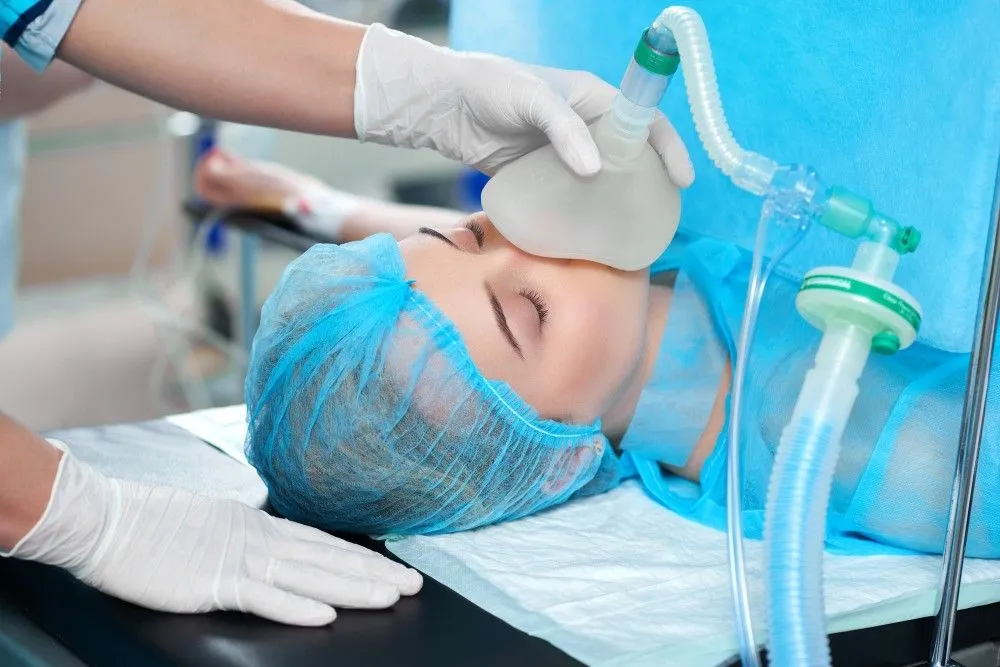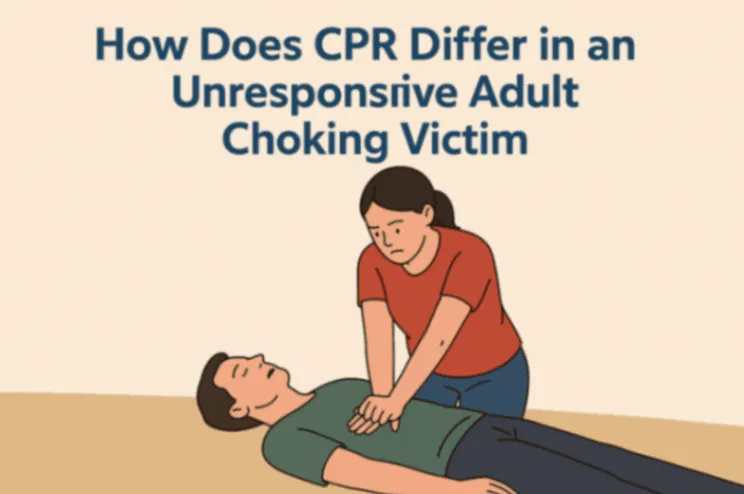|
Most pneumonia vaccine side effects are mild, like soreness, fatigue, or a brief fever. Severe reactions are rare, and CDC guidance confirms the benefits far outweigh temporary discomfort. |
What happens after a pneumonia shot? Maybe your arm feels sore, maybe you feel a bit drained, and you start wondering if this is normal. Don’t worry, these reactions are usually mild and short-lived, a sign your immune system is doing its job.
Pneumonia vaccines are a powerful defense against serious lung infections, especially for infants, older adults, and people with chronic conditions. In this article, we’ll explain the common pneumonia vaccine side effects, when to call your doctor, and how to manage any discomfort safely.
Pneumonia Vaccine Side Effects: What to Expect
Every vaccine sparks some kind of response. With the pneumonia shot, most reactions are mild. They tell us the body is building defenses. Still, reactions can vary. Knowing the range, what’s common and what’s rare, helps people prepare without panic.
More Common Side Effects
These side effects are mild and last for a temporary period, that is, for 1-2 days:
-
Pain, redness, or swelling at the injection site: These symptoms can occur at the injection area, typically in the upper arm.
-
Mild fever: Fewer than 1% of individuals develop a fever above 100.4 or 38.0 Celsius.
-
Fatigue or tiredness: Feeling exhausted or a lack of energy after getting the shot.
-
Headache: Throbbing headache in one part of the skull or felt in the whole head.
-
Muscle pain: Muscle aches can occur after getting the PPSV23 vaccine. But only 1% of people experience it.
Less Common Side Effects
Some individuals might experience less visible side effects, though they are mild:
-
Loss of appetite: This may make you feel nauseous at the time of eating food, or you may not feel hungry.
-
Irritability (particularly in children): This leads to feelings of frustration or upset, and in children to "fussiness".
-
Chills: Feeling cold without an obvious reason.
Rare but Serious Side Effects (Seek Emergency Help)
Serious side effects such as severe allergic reaction (called anaphylaxis) are very rare, but can occur (in 1 out of 1 million people). Seek emergency medical help or call 911 right away if you or your child experiences the following symptoms of an allergic reaction to the pneumonia vaccine:
-
Difficulty breathing
-
Rashes or hives
-
Swelling of the throat or face
-
Rapid heartbeat
-
Dizziness
-
Anxiety
-
Confusion
Side Effects of Pneumonia Vaccine in Babies
The babies get the PCV13 pneumococcal or pneumonia vaccine in 4 doses. The first dose is basically given at 2 months, and the other 3 doses are given at 4 months, 6 months, and then between 12-15 months.
Common Side Effects in Infants:
-
Fussiness or irritability
-
Tenderness, redness, swelling, or discoloration at the injection site
-
Low appetite
-
Disrupted sleep
-
Drowsiness or sleepiness
-
Mild fever
When to Call the Pediatrician:
-
High fever
-
Convulsions (seizures)
-
Skin rashes
What Parents Can Do:
This is how you can manage the following symptoms:
-
Fever: Give cool drinks to drink and remove extra layers of clothes if they are wearing them.
-
Tenderness, discoloration, swelling, or redness at the injection site: Apply an ice pack or cold compress to the affected area.
-
Fever and Pain: Give over-the-counter medicines like ibuprofen and acetaminophen as instructed on the product packaging.
How Long Do Pneumococcal Vaccine Side Effects Last?
The clock matters here. Most effects vanish in one to three days. A review in MDPI noted that 93.5% of reactions happened within the first day. That means the window is short.
Older adults, again, show a higher tendency for soreness, with 28.2% reporting local symptoms. But these were mild or moderate, not severe. Comfort measures, cold compress, light meals, hydration, help the process along. People usually return to normal routines quickly.
Benefits of the Pneumonia Vaccine
It’s easy to focus on temporary reactions, but the benefits of the pneumonia vaccine far outweigh them. These vaccines save thousands of lives each year and prevent severe illnesses such as meningitis, sepsis, and pneumonia.
1. Disease Prevention
The vaccine blocks the most common pneumococcal strains. Protection extends beyond pneumonia itself to meningitis and sepsis. Within weeks, the body develops immunity strong enough to stop serious infections. Children also see fewer ear infections and sinus infections after vaccination.
Table: How Protection Works
|
Illness prevented |
Evidence |
Time frame |
|
Pneumonia |
CDC monitoring |
Protection begins in 3 weeks |
|
Meningitis |
NIH vaccine safety data |
Lower hospital admissions |
|
Bloodstream infections |
PCV20 clinical trials |
Strong antibody response |
2. Impact on Elderly and High-Risk Groups
The pneumonia vaccine in elderly adults is a priority. They face higher death and hospitalization rates from pneumococcal disease. One dose at 65 provides years of protection.
People with diabetes, chronic lung illness, or weakened immunity benefit significantly. For them, the vaccine is more than a precaution; it’s a shield against outcomes that could become life-threatening.
3. Public Health Protection
Beyond individual benefits, vaccination limits bacterial spread. When children get their doses, older family members gain indirect protection. Outbreaks in hospitals and care homes decline. The wider the coverage, the smaller the risk of community outbreaks.
Who Should and Shouldn’t Get the Pneumococcal Vaccine?
✅ People who should get vaccinated:
Here are the vaccine recommendations according to the CDC:
-
All children under 5 years
-
Adults aged 50+
-
People 19–49 with chronic illnesses (heart, lung, diabetes, or liver conditions)
❌ People who shouldn’t get vaccinated:
-
nyone with a severe allergic reaction to previous doses
-
People allergic to vaccine ingredients (e.g., diphtheria toxoid)
Important Considerations:
-
Always inform about your vaccination history and the vaccine's ingredients (you are allergic to any) to the vaccine providers, as you might not be suitable for a pneumococcal vaccine.
-
Though vaccination is fine during a mild cold, vaccine providers can help with proper advice on whether to get a vaccine or wait till you don't feel better.
When to Seek Medical Help for Side Effects
Most pneumonia shot side effects fade quickly, but some signs demand medical care.
-
Fever above 104°F
-
Breathing difficulties or chest tightness
-
Swelling at the injection site that worsens instead of calming down
-
Infant seizures or unusual weakness
These signals are rare, but they need quick attention. NIH vaccine safety data and CDC guidance both confirm that trained staff can manage emergencies on the spot, but patients should know when to call for help.
Treatment Options for Pneumonia Vaccine Side Effects
Pneumonia vaccine side effects are usually mild and subside within a few days. If you feel a fever, take pain medications and fever reducers such as ibuprofen and acetaminophen. However, if you notice the following visible side effects, report them to the Vaccine Adverse Event Reporting System (which accepts reports of adverse side effects post vaccination):
-
Shoulder injury related to vaccine administration (SIRVA)
-
Nerve damage
-
Allergic reactions
If you are experiencing the long-term effects of the pneumonia vaccine, like SIRVA (with signs like lasting pain, mobility issues, and weakness), you might qualify for compensation through the Vaccine Injury Compensation Program (VICP). Basically, VICP is a program that gives financial relief for injuries related to vaccines.
Precautions Before Taking the Pneumonia Vaccine
Consider precautions in the following situations or conditions to avoid the risk of side effects or complications:
-
Allergies: Avoid the pneumonia vaccine if you are allergic to this vaccination or any other medications. Inform the doctors about your allergies, like foods, preservatives, or dyes.
-
Pregnancy: Neither PCV nor PPSV23 is recommended during pregnancy as there are no safe data about their impact on the fetus.
-
Breastfeeding: No adequate studies are available that claim pneumonia vaccine-related risk to infants during breastfeeding. So, weigh the possible benefits against risks with the help of your gynecologist before getting a shot.
-
Alcohol and Smoking: No evidence is available about the harmful effects of alcohol or smoking after a pneumococcal vaccine. However, if you smoke or have been using alcohol for a long time, discuss it with your doctor first.
Drug Interactions
Certain medications can interact with the pneumonia vaccine, which can reduce the pneumonia vaccine's efficacy and increase its side effects. So, inform your doctor if you use the following medications:
- Atidarsagene Autotemcel
- Teplizumab-mzwv
- Elivaldogene Autotemcel
- Ocrelizumab
- Ublituximab-xiiy
Health Conditions That Need Special Monitoring:
Specific medical conditions where pneumococcal vaccines might be advised, but need careful consideration:
- Chronic heart disorders, like congestive heart failure
- Chronic liver disease, such as cirrhosis
- Diabetes
- Kidney disorders
- Immune system problems due to cancer, prolonged steroid use, or HIV/AIDS
- Lymphoma, Hodgkin's disease, and leukemia
- Solid organ transplant
- Sickle cell disease
- Solid organ transplant
Final Thoughts
Pneumonia vaccine side effects are generally mild, short-lived, and manageable. The protection these vaccines provide against pneumonia, meningitis, and sepsis far outweighs temporary reactions like soreness or fever. Backed by CDC guidance and NIH vaccine safety data, vaccination remains one of the most effective ways to safeguard both individuals and communities. If you or your child experiences any symptoms after vaccination, or if you have questions about which vaccine is right for you, don’t hesitate to consult your doctor for personalized advice.
अक्सर पूछे जाने वाले प्रश्नों
Do pneumonia vaccine reactions mean the shot worked?
Yes. Mild reactions show the body is building protection. Most effects like soreness or fatigue vanish within days.
How long do pneumonia shots' side effects last in adults?
Common issues last one to three days. If reactions linger longer, call a healthcare provider for advice.
What are the risks of the pneumococcal vaccine for elderly adults?
The pneumonia vaccine in elderly patients may cause more soreness, but risks remain rare and outweighed by strong protection.
When should parents seek medical help after the pneumonia vaccine in children?
If the fever rises above 102°F, a seizure occurs, or breathing becomes difficult, urgent care is required.
How safe are PCV15 and PCV20 based on research?
CDC data confirms no serious vaccine-related adverse events in clinical trials, strengthening the safety profile for these vaccines.
लेखक





